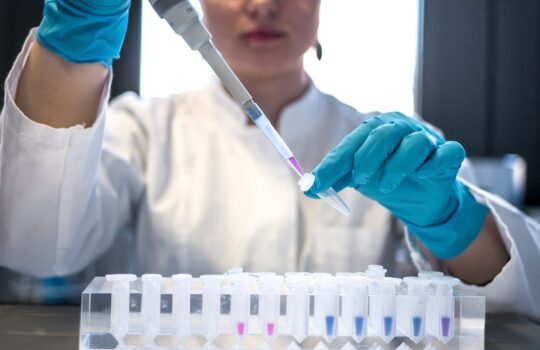Common Misconceptions About Low Testosterone

At TKO Vitality, clients frequently request educational information about symptoms and treatment options related to low testosterone. This article explores some of the most common misconceptions about testosterone deficiency and how understanding the facts may support better health conversations with your provider.
This information is for educational purposes only and does not constitute medical advice. Testosterone is a prescription medication that must be prescribed and monitored by qualified healthcare providers. Individual results may vary significantly. This content has not been evaluated by the FDA and is not intended to diagnose, treat, cure, or prevent any disease. Treatment outcomes cannot be guaranteed. Consult your healthcare provider before beginning any treatment.
Misconception 1: Low Testosterone Only Affects Older Men
While testosterone levels naturally decline with age, low testosterone (also known as hypogonadism) can affect men of all ages. Some individuals may begin to experience symptoms in their 30s or even late 20s, particularly if underlying health conditions, chronic stress, or lifestyle factors are present. Age is one factor, but not the only one.
Misconception 2: You’ll Know If Your Testosterone Is Low
Many people assume low testosterone is easy to spot, but symptoms are often subtle and gradual. Feeling tired, gaining weight, reduced motivation, poor sleep, mood changes, or lack of focus are common complaints. These issues are frequently attributed to stress or aging, when in fact they may signal hormonal imbalance. Blood testing is the only reliable way to assess testosterone levels.
Misconception 3: Low T Is Just About Sex Drive
While a reduced libido is a well-known symptom, according to medical literature, testosterone plays a much broader role in the body. It may influence muscle mass, bone density, mental clarity, energy levels, metabolism, and overall vitality. Testosterone receptors are found throughout the body according to published research, and low levels may impact multiple systems.
Misconception 4: Testosterone Therapy Is Only for Bodybuilders
This is a common misunderstanding. FDA-approved testosterone replacement therapy (TRT) is not about building extreme muscle. For many individuals, the goal is to restore balance and function, not to exceed natural capacity. Properly monitored TRT focuses on bringing levels back into a healthy range, not pushing them beyond what the body needs.
Testosterone therapy may cause serious side effects including increased risk of heart attack, stroke, blood clots, prostate problems, sleep apnea, and liver problems. Regular monitoring by a healthcare provider is essential. Not suitable for men with prostate or breast cancer, or suspected prostate cancer.
Misconception 5: Testosterone Therapy Works Instantly
Unlike quick fixes, testosterone optimization is a process. Some individuals may experience gradual changes over weeks or months, though individual results vary significantly and cannot be predicted. Some people may report improved sleep, energy, and mood initially. Physical changes such as fat loss or improved muscle tone may take longer and are best supported with healthy nutrition and activity. Results are not guaranteed and vary considerably between individuals.
Misconception 6: You’ll Become Aggressive or Roid Rage Is Inevitable
Media portrayals have created a misleading image of testosterone. When used properly under medical supervision, FDA-approved testosterone therapy does not typically cause uncontrollable anger or erratic behavior. Some individuals may report more emotional stability and mental clarity once levels are balanced, though individual responses vary.
Misconception 7: Low Testosterone Is Just a Normal Part of Aging
While testosterone levels do decline with age, that does not mean symptoms should be ignored or accepted. There is a difference between normal aging and optimal aging from a wellness perspective. If low hormone levels are affecting quality of life, there may be FDA-approved options to consider under proper medical care.
Why Understanding the Truth Matters
Misconceptions about testosterone can keep individuals from having informed conversations with their healthcare providers. If you have been experiencing unexplained fatigue, low motivation, brain fog, or persistent weight gain, it may be worth discussing with a healthcare provider who understands hormone health.
Hormonal wellness concepts are about supporting your body’s natural function through informed healthcare decisions.
TKO Vitality Educational Services:
TKO Vitality’s licensed physicians and nurse practitioners offer educational consultations about hormone health, including testosterone therapy information. These sessions help individuals ask informed questions, review lab results, and explore whether hormone-related issues may be contributing to their symptoms.
Our Educational Services Include:
- Hormone-focused educational consultations (not medical treatment)
- Guidance on lab testing and interpretation
- Lifestyle-based health planning information
- Discussion of TRT and TET treatment options

Don’t wait, low testosterone affects millions, and time’s running out to take control. Join thousands transforming their lives with TKO Vitality.
This information has not been evaluated by the FDA and is not intended to diagnose, treat, cure, or prevent any disease. Treatment outcomes cannot be guaranteed and may vary significantly between individuals. All medical decisions should be made in consultation with qualified healthcare providers familiar with your complete medical history. TKO Vitality does not guarantee any specific health outcomes from educational information provided. Individual results vary and cannot be predicted. Consult your healthcare provider regarding the appropriateness of any treatment options discussed.






